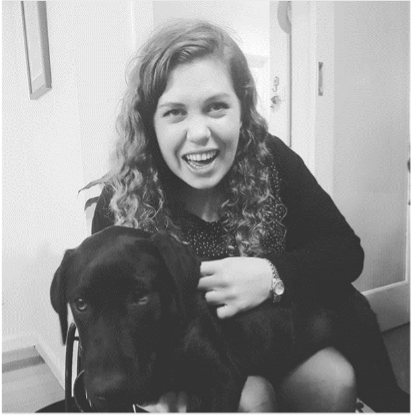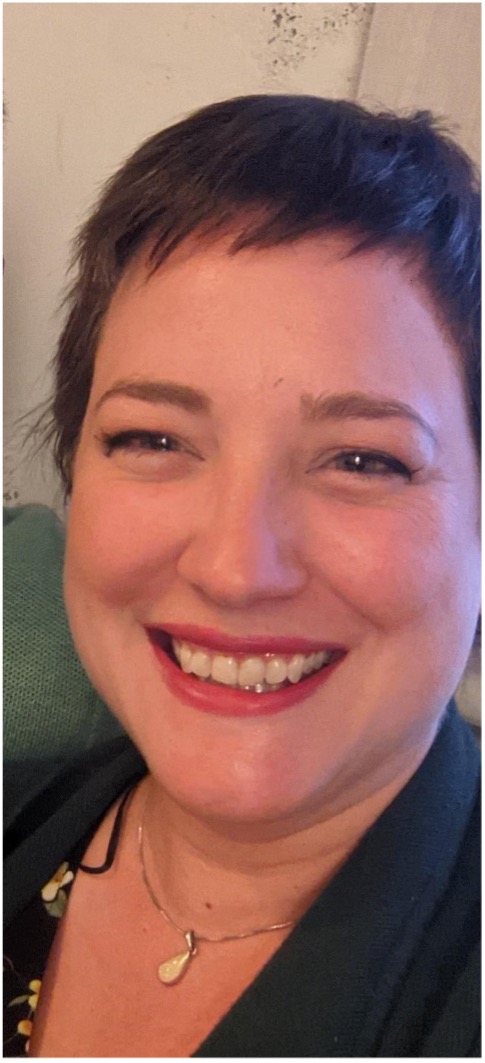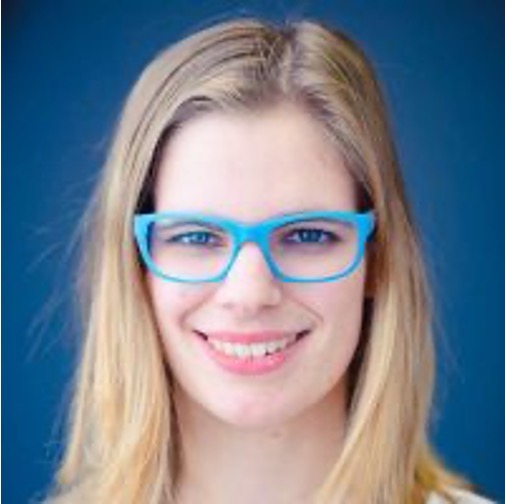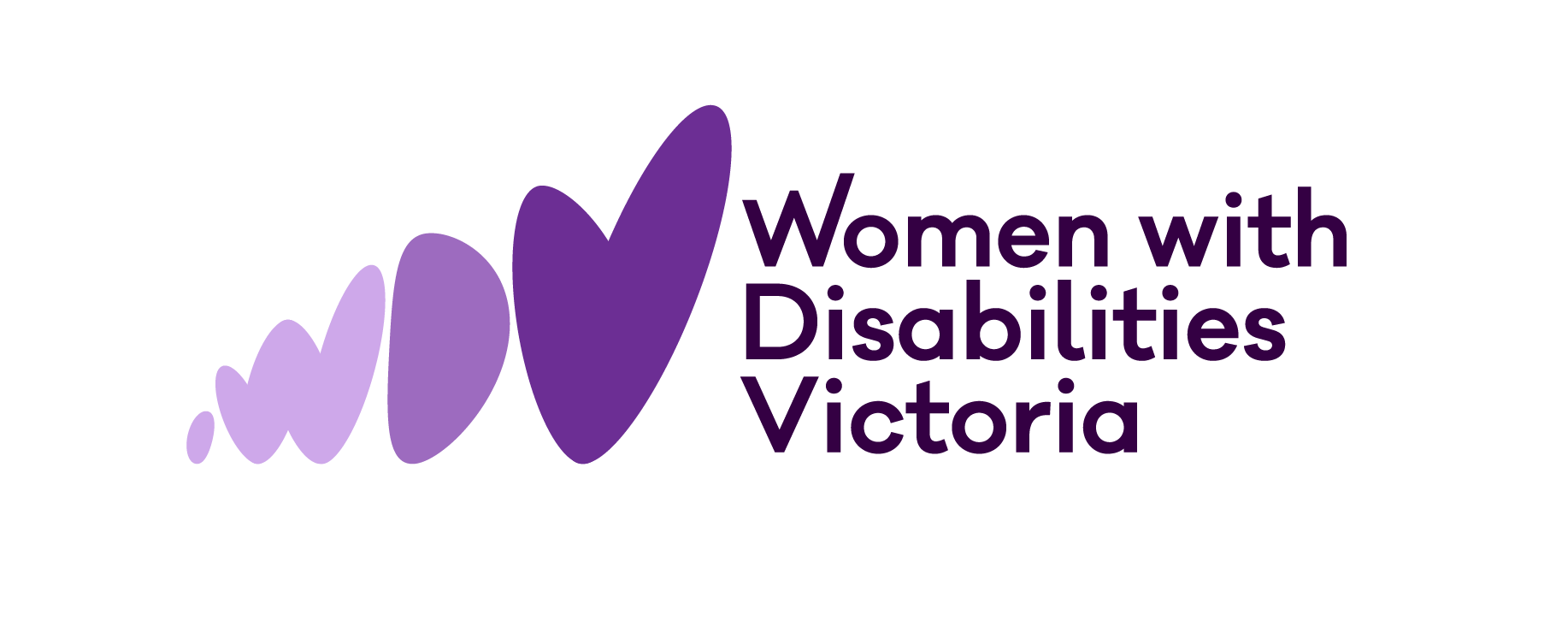Board Nomination Statements
Please find on this page brief statements from all our Nominees for positions on the Board of WDV. As at the date of the WDV 2021 Annual General Meeting, the number of vacancies for Member Directors on the Board is four. Five nominations have been received from:
Note: The following Director has served one term and is up for re-election: Imogen Newhouse.
Nomination Statements

Alex Holland
1. Tell us about yourself. Who are you, what communities do you belong to and what are you passionate about?
I am a young woman living with cerebral palsy in regional Victoria. After practicing as a lawyer at the NDIA for two years, I recently left to join the SDA Alliance in a Senior Policy role. In this role, I have been able to pursue my passion for improving the housing outcomes of people living with disability across Australia. I volunteer my time outside the workplace with Uniting, the Geelong City Council and have recently joined the WDV Governance Committee as a co-opted member. I am passionate about ensuring the disabled voice is present in any research or policy relating to disability.
2. Why are you interested in being a Director on the WDV Board?
I am interested in being a Director on the WDV Board to become more involved in the Victorian disability community, to refine my leadership skills and to learn from fellow women with disabilities.
3. What do you want to achieve as a Director of WDV?
COVID-19 has isolated many women with disability over the past two years. I’d love to see WDV run more formal and informal online sessions to ensure women with disability feel connected, valued, and remembered. As a Director of WDV, I would like to push this onto the 2022 agenda.
4. Please tell us about any interests which may conflict with or are relevant to your role as a potential Director of WDV?
No conflicts to note.
5. Tell us about any disability or community skills, experience and/or expertise you can offer the WDV Board.
I have a legal background with excellent knowledge of disability human rights. I am familiar with disability related legislation – both federal and state – and have a good understand of the CRPD, including how it can be used to advocate for change. My previous work experience at the NDIA as a graduate, paralegal and lawyer informs my understanding of the NDIS, the disability sector more broadly and how government functions. My lived experience of disability informs my understanding of accessibility issues and everyday barriers. I am currently employed as a Senior Policy Officer and am proficient at writing about disability related issues.
6. Tell us about any professional skills, experience and/or expertise you can offer the WDV Board:
I spent two years working as a corporate lawyer at the NDIA and have a good understanding of governance and risk management issues. I have excellent research skills and my writing skills are well developed.
7. What do you think are the most significant challenges and opportunities for women with disabilities in Victoria?
Women with disability face significant disadvantage when it comes to education, employment, health care and leadership roles, especially when compared to men with disability. I would love to see Victoria lead the way in reducing the gap of disadvantage and improve the outcomes of women with disability across the state. WDV is a unique organisation that can address this systemic disadvantage through community education and advocacy.
8. Is there anything else you want the Members and Board to know?
Due to disability, I have a speech impediment and will require reasonable adjustments to participate in Board Meetings.
Helena Jordan
1. Tell us about yourself. Who are you, what communities do you belong to and what are you passionate about?
In 2018 I completed a double degree in Arts and Global Studies with a view of pursuing a career in the public sector and Government agencies to develop and deliver social policy that improves outcomes for people facing disadvantage. Having since completed a Master of Public Policy (Organisational Leadership Stream) I am looking to continue gaining knowledge of the public sector and the policies that protect and promote the lives of its most vulnerable citizens. I am currently working full time at the not-for profit Domestic Violence Victoria, as a Policy Advisor. I have experience in both not-for-profit and private sectors domestically and internationally. My previous experience listed below have led me to support organisations working within areas of impact investing, consultancy, female financial empowerment, gender-based violence, refugee family services and affordable housing.
2. Why are you interested in being a Director on the WDV Board?
I would love to be a board member of WDV because I have enjoyed every minute of being part of WDV’s Youth Co-design group. It has inspired me to become even more active in this space and I believe joining the board will allow me to have an opportunity to deliver further impact and actively advocate.
3. What do you want to achieve as a Director of WDV?
My areas of passion are advocacy, social impact measurement, communications, and grants. Therefore, I would like to actively participate in facilitating and contributing to discussion around lived experience, developing evaluation and impact measurement tools, and assisting in communicating the values of the organisation. In addition, I have previous experience in delivering grants and would love to be successful in applying and receiving grants for the organisation.
4. Please tell us about any interests which may conflict with or are relevant to your role as a potential Director of WDV?
I would like to disclose that I am currently in a Policy Advisor role at Domestic Violence Victoria. I am comfortable seeking the boards advise on whether they believe this is a conflict. On a personal note, I think this risk can be easily mitigated.
5. Tell us about any disability or community skills, experience and/or expertise you can offer the WDV Board.
- Lived experience with a physical disability, learning disability, chronic illness, and mental illness.
- Previous experience advocating for disabled youth from marginalized community with WDV.
- An understanding of public policy, business, and social impact.
- Work within the community sector for 5+ years.
- Volunteer at Endometriosis Australia, Chalk Circle (gender literacy foundation), WDV and board member of The Pink Belt Project.
6. Tell us about any professional skills, experience and/or expertise you can offer the WDV Board:
- Undergraduate – Bachelor of Arts and Bachelor of Global Studies- Australian Catholic University 2015-2018.
- Postgraduate – Master of Public Policy- Monash University 2019-2020.
- Good Shepherd Australia New Zealand 2018 (skills in finance & social issues).
- Impact Investing Australia 2019-2021 (skills in grant funding and social impact evaluation).
- Domestic Violence Victoria 2021-Present (skills in DV expertise, resource development and policy proposals).
7. What do you think are the most significant challenges and opportunities for women with disabilities in Victoria?
Covid 19 presents a challenge and opportunity for the delivery of services and education. I am committed to work with advocates to determine the future of service delivery and ensure a similar accessible model can be applied to industry
8. Is there anything else you want the Members and Board to know?
N/A

Emma Klemm
1. Tell us about yourself. Who are you, what communities do you belong to and what are you passionate about?
My name is Emma, I am a person with MS. I work casually as a suicide bereavement counsellor. I have just completed my bachelor’s in psychology at La Trobe Uni. I live in Bendigo, and I love being a part of the Bendigo community. I have a three-year-old daughter, Nazarina (Naz, Nazzy). She attends day-care and is an absolute delight. My husband, Regan, is a huge support and cares for me when I need it. I am passionate about suicide prevention and support. I am passionate about raising awareness about what it is like living with a chronic illness. I do this through my Instagram account ms_newb where I explore my MS diagnosis and educate myself and friends and family about it. I am also producing a short story about living with MS to help normalise our experience for my daughter.
2. Why are you interested in being a Director on the WDV Board?
I am interested because the Board would be a great group for me to connect with. My identity and life has gone through upheaval during the onset of symptoms and diagnosis of MS. I believe that by being a part of a proactive group would help me to find the best in this journey. I am impressed with the advocacy and educational work that WDV do, I would be very proud to be a part of it
3. What do you want to achieve as a Director of WDV?
I hope to connect with a group of like-minded individuals and give my support, knowledge, and experiences to good use. I would hope to raise awareness in Regional Vic on who WDV are and help advocate for women in my community. I would like to learn more about WDV and what work we can do to lift its profile and help women with disabilities have their voices heard.
4. Please tell us about any interests which may conflict with or are relevant to your role as a potential Director of WDV?
I do not believe I have any interests that would conflict or that are relevant. If anything comes up in the future, I will be sure to advise the WDV Board.
5. Tell us about any disability or community skills, experience and/or expertise you can offer the WDV Board.
Being a part of the medical world, I have learnt to advocate for my right to medical care. My first experience in hospital was a lot like many other women with chronic illness: a sense that I wasn’t being believed or taken seriously. I believe the hospital system is biased against invisible disability which most of the time affects women. I advocated for myself by not accepting “nothing was wrong” and finding an appropriate neurologist to do the detective work to figure out my diagnosis.
6. Tell us about any professional skills, experience and/or expertise you can offer the WDV Board:
I have previously been on the Young Professionals Network Bendigo Board. I assisted with marketing and events coordination for the group. My professional working background is in PR, events and marketing, and administration. I was a part of changing policy at GrainCorp to ensure the first painted silo at Brim could go ahead. This has led to an Australia-wide silo art, often in small rural communities which provides a tourism boost to them. This project also involved networking with multiple partners, such as the Brim community advisory group and the art PR company. My psychology degree has given me useful research and report writing skills.
7. What do you think are the most significant challenges and opportunities for women with disabilities in Victoria?
We know women with disabilities are at high risk for abuse, neglect, and invisibility. I think the most significant challenge is to empower women with disabilities to advocate for their rights. Covid poses a significant challenge to the health and safety of women with disabilities, whether they can be vaccinated or not, we are more vulnerable to the effect of “opening back up” and what the risk of covid could mean for us. Women with disabilities have a right to feel safe in their community, this is a challenge during normal times, but with the addition of covid makes this even more challenging. There is an opportunity here to educate the community of this and give a voice to any concerns women have about “living with covid”.
8. Is there anything else you want the Members and Board to know?
Thank you for considering my application. I am willing and able to put my passion, time, and energy into something so worthwhile. I hope to add a regional perspective to the Board and put my years’ experience of corporate work into something good.

Imogen Newhouse
I have served on the Board of WDV for the past three years, including as Deputy Chair in 2020 and as Chair in 2021. I have a Bachelor of Politics, Philosophy & Economics from La Trobe University and have 7 years’ experience working in the non-profit and corporate sectors across the disability, environmental sustainability and business development space across Australia, India and Cambodia.

Gillian Victor
1. Tell us about yourself. Who are you, what communities do you belong to and what are you passionate about?
I am Gillian Victor. I go by the name “Gill” and the pronouns “she/her”.
I’ve spent my career as an ally and dedicated campaigner for people who are not treated equally by society, most often due to systemic responses. The last ten years of my career have been in the disability sector, where I’ve worked within the deaf and hard-of-hearing communities and more broadly across multiple disabilities.
Professionally, I’m a senior leader specialising in marketing and communications, using my skills to amplify the voice of people with disability in the public domain and in advocating for specific outcomes for the disability sector more broadly.
I am a perpetual student, particularly in leadership and organisational psychology, and a committed mentor, using my skills to support women to believe in their value, find their own voices, and not only find their place – but make their mark in their communities and workplaces.
2. Why are you interested in being a Director on the WDV Board?
I share the values that WDV holds in relation to building the strength and voice of women with disability deeply.
I believe in the value of allyship, and the ways in which allies can raise public awareness of the need for – and value – of considering the experiences of others, especially women, who are so often overlooked, undervalued, and face barriers to participating meaningfully – yet who form the cornerstone of our society. These barriers are even more so experienced by women with disability.
A role on the Board of WDV would enable me to serve this community; make a mark on the broader community understanding of disability; and know that I’ve left a positive legacy through my work.
3. What do you want to achieve as a Director of WDV?
- I’d love the opportunity to support women with disability to tell their own stories in the places that matter, to drive awareness of the need for and value of considering the experiences of women with disability in Government policymaking but also within organisations and the general community.
- I’d aim to drive membership numbers and engagement to support WDV hubs to self-organise and share skills and learnings within their local regions.
- I’d aim to bring my networks across different sectors to support WDV strategic goal achievement, thereby growing the reach of the interests of WDV membership.
- I’d aim to support organisational growth and sustainability through bringing sound governance principles and leading practices into the organisation, where relevant and of benefit.
- I’d aim to bring sound, supportive leadership and organisational development practices to support WDV to keep pace and plan of the needs of the future.
4. Please tell us about any interests which may conflict with or are relevant to your role as a potential Director of WDV?
There are no conflicts of interest currently. I am in a leadership role at Able Australia, which is a disability service provider. In the future, a potential conflict of interest may arise, if, for example, both Able and WDV wanted to apply for the same grant or funding pool. I understand the requirements of identifying and declaring conflicts of interest, should they arise, and would take appropriate actions early, should they occur.
5. Tell us about any disability or community skills, experience and/or expertise you can offer the WDV Board.
I bring ten years of leadership in the disability sector, advocating on behalf of people with disability to a wide range of stakeholders, including government and government agencies (i.e., the NDIA), public and private sectors. My experience has included systemic and individual advocacy with people with a wide range of disabilities (including LGBTIQA+, deaf and hard-of-hearing, CALD, and low vision), including those disabilities which are invisible and with high levels of public misunderstanding and need for education.
My career has spanned disability employment and accessibility of all types, in a range of applications. I bring expertise in working with the government to advocate to make communications accessible, supporting government to develop communications accessibility guidelines, as well as to support transport accessibility.
6. Tell us about any professional skills, experience and/or expertise you can offer the WDV Board:
I bring senior executive leadership in the disability sector, leading the Marketing, Fundraising and Engagement functions, while supporting strategy development, organisational growth, and transformation to support sustainability, risk management, income development, community engagement and partnership development. This is backed by the completion of an MBA, my experience in numerous mentoring roles, and long and close interaction with board committees.
I have a broad range of skills in strategy and organisational development and have skills in stakeholder engagement and in the ability to bring together connections with similar interests, along with community engagement and marketing, fundraising, and public relations.
In terms of communications, I am proud to have developed accessibility guidelines for website and other communications – beyond WCAG guidelines – developing the world’s first bilingual Auslan-first platform. Moreover, I led the development of an underpinning communications methodology to support accessibility.
7. What do you think are the most significant challenges and opportunities for women with disabilities in Victoria?
In a world crowded with voices, a key challenge is in supporting women with disabilities by building their own capacity to navigate systems in which barriers remain.
So often the prevailing able-ism and prejudice against women is left unseen, unscrutinised and, in fact, internalised – even by women.
The opportunity here lies in building the capacity of women to identify these attitudes and the barriers that these attitudes create, and to support women to call out the attitudes and dismantle the barriers, constructively, through training, resources, and support at both a systemic and individual level.
When women with disabilities find their voices against these attitudes, the environment is created for these women to feel able to take up the opportunities that are out there, and have a voice at the table
8. Is there anything else you want the Members and Board to know?
WDV has come highly recommended by a professional in the disability sector. I would welcome the opportunity to serve through WDV.
